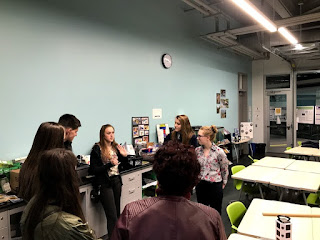Last week I was able to attend a week of
World Food Prize events in Des Moines, Iowa and we were even able to host a Laureate Lecture on campus in Waterloo. The week is always filled with incredible and inspiring learning opportunities. Throughout the week I took note of many pieces of information and quotes shared. Below you will find a small selection of some quotes I took note of. I encourage you to read through the quotes below and challenge you to discuss with others around the globe!
Challenge:
- Read each quote individually.
- Pick at least two quotes to think about and analyze further, in regards to solving world hunger and malnutrition and/or improving agriculture around the globe.
- Share your thoughts: Discuss with others, raise awareness on social media, create a poster to share with your class/school, and/or take action.
"When rebuilding after conflict nothing can be accomplished until we eat. We must have food in our stomach before anything else." H.E. Chanthol Sun
"We can do well by doing good. Profit and fulfilling a mission can be done together." Polly Ruhland
"We are very good at describing a world we do not want, but we are not very good at describing the world we do want. We must have a vision." Roy Steiner
"Can we feed nine billion people by 2045? When I look at the science and technology I am optimistic, but the pessimistic side of me is concerned by the role politics and regulations play." Chris Nelson
"It's about feeding the world, without starving the earth." Liam Condon
"We all must work off the same data and information before change can happen." Sara Menker
"All lives have equal value, but not all lives have equal opportunities." Roger Voorhies
"In a world with less and less certainty we need more diversity (seed and plant)." Lawrence Haddad



